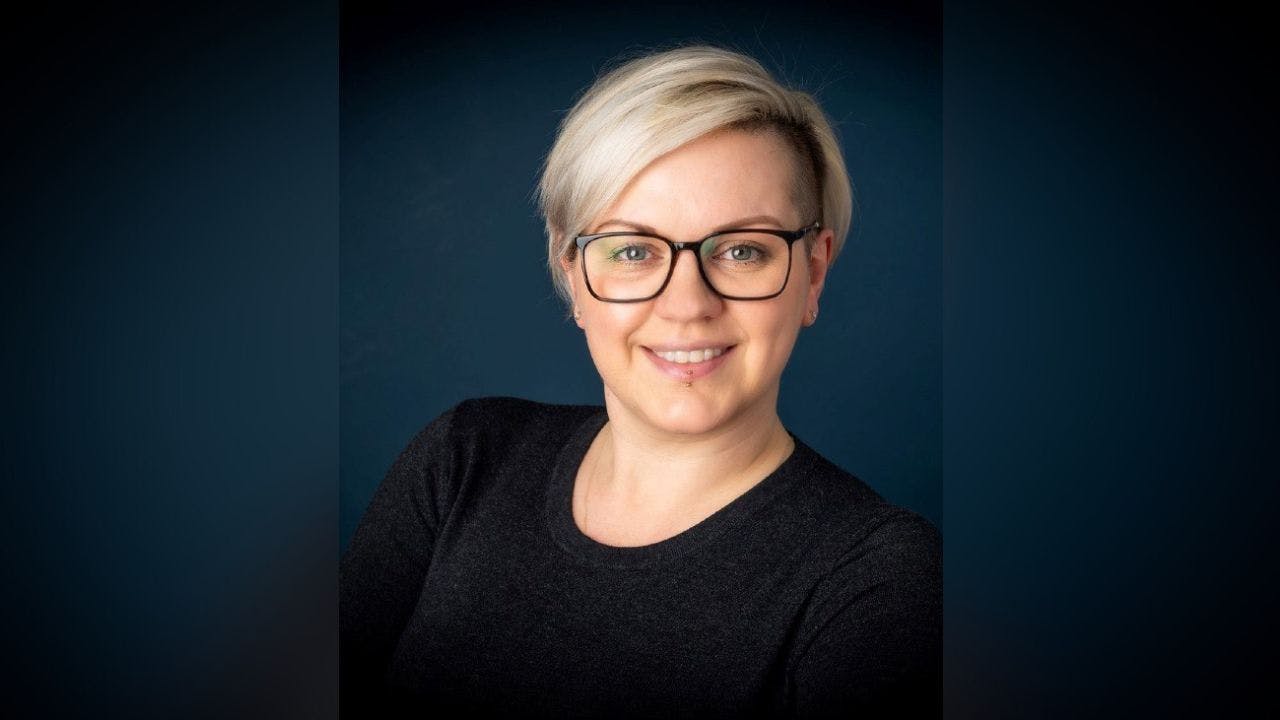- Looking for Work?
- Looking to Hire?
- HR and Benefits
- Frequently Asked Questions
- CoreMed Rewards
- Guide To Travel Nursing
- Guide To Travel Therapy
- Guide to Locum Tenens
- Guide to Respiratory Therapy
- Guide to Interim Healthcare Management
- Travel/Contract Allied Staffing Solutions
- Travel/Contract Nursing Staffing Solutions
- Permanent Staffing Solutions
- Locum Tenens Staffing Solutions
- Interim Healthcare Management
- Joint Commission
- All-Inclusive Trip
- Club CoreMed Ultimate Guide
- Executive Management Team
- Staff Directory
- CoreMed News
- Start Your Career with Core
- Open Positions
- Traveler Forms
- Nursing Licensure
- OT Licensure
- PT Licensure
- SLP Licensure
- CMGConnect - Mobile App
- Housing Options

The Ultimate Guide to Travel Therapy
Everything you should know, what is travel therapy, who can be a travel therapist, why do i want to be a travel therapist, how do i get started.

Travel therapy is a career option for physical therapists, occupational therapists, and speech therapists who are looking for short-term contracts at facilities across the country. Travel therapy jobs often range in length, with most contracts lasting 13 weeks. Travel PTs, OTs, and SLPs along with therapy assistants can find therapy travel jobs in all 50 U.S. states at hospitals, inpatient and outpatient facilities, school systems, and home health networks. Can you picture yourself taking your therapy career to the next level with exciting new experiences all over the United States?
Anyone can be a travel therapist, all you need is a sense of adventure, flexibility, and the desire to provide high-quality care. We recommend PTs, OTs, and SLPs have at least one year of experience before taking travel contracts, as travel therapy jobs require a strong skill set and the ability to hit the ground running. Travel physical therapy and travel occupational therapy professionals are in high demand. If you can jump into a new position and adapt quickly, you will thrive in this role.
Why not? Travel therapists earn competitive pay and receive outstanding benefits packages with free or low-cost housing. Then there’s the obvious perk – the travel! Travel therapy professionals have the freedom to move to dream destinations, seeing and experiencing the U.S. as few get to do.
Travel therapy jobs come with a unique set of requirements, but travel therapy companies can help place you exactly where you would like to be. Once you determine that travel therapy is the right career move for your lifestyle, reach out to a reputable travel therapy company. You can earn more, travel more, and stress less with an experienced travel therapy recruiter guiding you on your first travel therapy assignment.
GO TO CHAPTER ONE

Have a specific location in mind? We have travel nursing, travel allied, Locum Tenens, and permanent healthcare career opportunities in all 50 states. Search our healthcare job database to find the position you are looking for.

- Job Seekers
- Club CoreMed
- Traveler Tools
- CoreConnect
- Login/Signup
- Privacy Policy
- CCPA Policy

- Benefits & Perks
- ProVenture - App & Portal
- HR Information
- Licensure & CEU Info
- Help Center
- Life as a Healthcare Traveler
What is Travel Therapy?
Travel therapy is a career option for pts, ots, and slps who want full-time pay and benefits on short-term gigs..
Travel therapy contracts are traditionally for 3 months at a time, but can go as long as 10 months. While most healthcare facilities prefer 13 week (3 month) contracts, schools most commonly need travelers to commit to the school year (up to 10 months). Employers in any setting may offer contracts for longer or shorter periods of time, it depends entirely on the needs and preferences of the individual employers.
Once an assignment (or contract) is completed, it's very common for employers to offer an "extension" to our travelers when they've been unable to find a permanent employee for your position. In those cases, a traveler can choose to remain at an assignment for another 13 weeks or a total of 6 months. Many of our travelers are happy to extend, especially when they're really enjoying a location or employer.
The requirements to start work as a traveling therapist are no different than the requirements for taking a staff position.

Travel Therapy Mentor
Travel PT duo helping PTs, OTs and SLPs to become successful travel therapists!
Travel Therapy 101: The Basics

6-Part Series for Those Getting Started with Travel Therapy!
If you’re new to travel therapy, start here to learn the basics!
There are six key travel therapy topics below, each with an accompanying article and video (plus the audio version of the video on our podcast).
If you’re ready to jump into your travel therapy career in the next 3 months, fill out our recruiter recommendations form here to get connected with the best recruiters to help you start your job search!
Get ready to dive in and start learning the essentials of travel therapy!
Part 1: What is Travel Therapy & How Does It Work?
- YouTube Video
- Podcast (Audio version of video; Podcast Episode 11)

Part 2: Understanding Travel Therapy Pay
- Podcast ( Audio version of video; Podcast Episode 13)

Part 3: Finding Travel Therapy Housing
- Podcast ( Audio version of video; Podcast Episode 15)

Part 4: The Travel Therapy Licensing Process
- Podcast ( Audio version of video; Podcast Episode 17)

Part 5: Finding and Working with Recruiters
- Podcast ( Audio version of video; Podcast Episode 19)

Part 6: Tax Homes for Travel Therapists
- Podcast ( Audio version of video; Podcast Episode 21)

Additional Resources
- You can save $150 on the course with the discount code “travel”.
- If you’re ready to get started traveling, fill out our recruiter recommendations form and we can get you connected with a few great recruiters to begin the process of finding travel therapy job opportunities!
- If you have any questions, please feel free to send us a message !

Share this:
- Bipolar Disorder
- Therapy Center
- When To See a Therapist
- Types of Therapy
- Best Online Therapy
- Best Couples Therapy
- Best Family Therapy
- Managing Stress
- Sleep and Dreaming
- Understanding Emotions
- Self-Improvement
- Healthy Relationships
- Student Resources
- Personality Types
- Guided Meditations
- Verywell Mind Insights
- 2024 Verywell Mind 25
- Mental Health in the Classroom
- Editorial Process
- Meet Our Review Board
- Crisis Support
Does Travel Count as Therapy? Why Tourism is Great for Your Mental Health
Krystal Kavita Jagoo is a social worker, committed to anti-oppressive practice, who has worked for three academic institutions across Canada. Her essay, “Inclusive Reproductive Justice,” was in the Reproductive Justice Briefing Book.
:max_bytes(150000):strip_icc():format(webp)/KrystalJagoo_1000-8aa2f415b18944a5a481922fc535003c.jpg)
Verywell / Madelyn Goodnight
Key Takeaways
- Researchers reviewed the potential benefits of tourism for individuals with dementia.
- Travel may help to improve well-being for those struggling with mental distress.
- Exploring a new environment through travel may assist individuals with distress, so these insights should inform future policy.
We know the benefits of art therapy and music therapy , but a new study shows how travel therapy may be another type of intervention that can be added to the list.
A recently published journal article in Tourism Management found that the experience of going on a vacation can be beneficial for people who navigate dementia. Researchers note how tourism experiences may provide positive impacts as a dementia intervention.
Not only is travel therapy beneficial for those with dementia, but it can help those who struggle with other mental health issues as well.
Given how travel was disrupted by the pandemic , it may be worthwhile to consider how it may impact individuals with mental health struggles.
Understanding the Research
Researchers explored how travel engages feeling, thinking, doing, and sensory experiences to develop a framework based on existing positive psychology interventions for dealing with dementia.
By drawing on the benefits of positive psychology , some tourism interventions include experiencing a theme park, beach-related travel, and family trips. In this way, travel may benefit both those who deal with dementia, as well as other mental health challenges.
This research is one of the first to explore connections between tourism experiences and mental health interventions through the lens of positive psychology, with such benefits as savoring the moment, feeling gratitude , and thinking about positive experiences.
Travel Can Restructure Your Mind
Psychotherapist with Mindpath Health , Taish Malone, LPC, PhD, says, "This study supports that restructuring your mind can be more helpful when your stimuli, environment, people, duties, and so forth change."
Sensory and cognitive stimulation is important for mental health, as well as exercise . When people go on vacation, they find themselves in a new environment and different culture, and are physically moving in ways they may not at home.
Despite potential benefits, Malone recommends, "Travelers should be cognizant that while travel will offer some reprieve, the assumption that other countries aren’t faced with similar issues may be too much of a blindly optimistic view that could lead to further disappointment."
"Political unrest and social disruptions are not lost in other parts of the world. Travelers should do their research to make sure to choose places and/or locations to best meet their overall needs," she says.
While there is research on the psychology of travel, Malone notes that most discuss the purpose of travel as being a great determiner of the experience.
"Motivators range from those seeking mental reprieve to exposure and connection of either their own or another culture," she says.
"The intentions behind a person’s travel plans will determine the expectations they may have of the trip and if it can be perceived as beneficial. No matter the reason behind traveling, the mindset should always embrace the best the experience has to offer," she explains.
Mental distress may contribute to distortions that impact life experiences, according to Malone.
"This is not generally conducive to enjoying some experiences, since it limits functionality and significantly interferes with their outlook and relationship with themselves, other people, their work, and even their embrace of enjoyment in life," she says.
Taish Malone, LPC, PhD
Travelers should be cognizant that while travel will offer some reprieve, the assumption that other countries aren’t faced with similar issues may be too much of a blindly optimistic view that could lead to further disappointment.
In her therapy practice, Malone has often heard feedback from clients that support the idea that expectations and outlook greatly determine a person’s experiences regardless of where you are or what you do.
Malone highlights, "Some may have a distorted view that they will not have to continue to work on their growth strategies just because the stressors they once had were specific to their at-home experiences. However, they should focus on using the travel experience as a reset to choose better practices of experiencing life altogether."
"Many clients have benefited from seeing the wonder of life and what is important without the 'noise' of their daily grind, and returned with a new perspective. Yet, I have had others who were so intent on their own rigid ideals that they returned even more cynical," she says.
While a change of scenery and the absence of deadlines may help, Malone notes that admiring the beauty in life is possible no matter where you are.
Finding a Sense of Balance
Neuroscientist and clinical social worker Renetta Weaver, LCSW-C , says, "The research suggests that traveling to new environments offers a social and emotional experience that boosts happiness hormones and leads to new learning in ways that differ from the habitual structure of our everyday environment."
Although more research is needed in the area of travel and enhanced functioning in people with mental distress, Weaver notes that there is already proof that creative activity and experiences help to stimulate the brain.
Weaver recommends, "Think about how important it is for you to unwind after work, or how many of us look forward to the weekend. We all need ways of mentally and physically escaping. Our brain is always seeking a way to help us blow off steam and re-establish a feeling of balance."
Getting out of the country for a period of travel may provide that mental or emotional escape, according to Weaver.
"Looking out into that vast ocean can feel like a million miles away from the problems at home," she says.
"Traveling out of the country can also help us shift our perspective and remind us that our problems are small compared to the largeness of the world; the world extends beyond our corner."
Traveling out of the country can be a reminder that one does not have it as bad as one thought, as Weaver notes that happiness is not determined by material possessions or wealth.
Renetta Weaver, LCSW-C
The research suggests that traveling to new environments offers a social and emotional experience that boosts happiness hormones and leads to new learning in ways that differ from the habitual structure of our everyday environment.
While travel may be treated as a luxury experience, Weaver notes that research shows that traveling adds a flavorful ingredient in the recipe for optimal brain functioning.
"In the absence of stimulating activities and experiences, our brain becomes bored and falls asleep," she says.
"For people who are oppressed due to their financial status, sexual status, or citizenship status, it’s safe to assume that there are perceived threats that cause psychological limitations to traveling."
For those who are trans, Weaver notes they may feel unsafe traveling due to transphobia.
"For those who don’t have citizenship, they might fear not being allowed back into the country once they leave," she says.
The mind does not know the difference between imagining something and actually doing it, so Weaver encourages a rich use of the imagination if physically traveling is not an option.
"That’s what we do when we meditate , and the scenery is a beach or a mountain," she says.
Weaver explains, "Neuroscience teaches us about the plasticity of the brain and the possibility of recovering the parts of our brain that we thought we lost. Traveling can lead to the release of dopamine , serotonin , and oxytocin , which cause our bodies to heal and function well."
"Travel is more than just a luxury, it's a necessity. It may be the only time we stop and smell the roses. Travel can help us to remember what we are living for instead of forgetting what we have because we're busy in constant pursuit of what we don't have," she concludes.
What This Means For You
Travel may offer unique benefits as a mental health intervention. If you or someone you love have not explored tourism as an opportunity to improve quality of life in terms of mental health, it may be worth considering.
Wen J, Zheng D, Hou H, et al. Tourism as a dementia treatment based on positive psychology . Tour Manag . 2022;92:104556. doi:10.1016/j.tourman.2022.104556
By Krystal Jagoo Krystal Kavita Jagoo is a social worker, committed to anti-oppressive practice.
10 Most Asked Questions About Travel Therapy with Alyssa Peters, OT
July 25, 2022
Megan Bebout

10 Most Asked Questions About Being a Travel Therapist with Alyssa Peters, OT
To help us answer some of the most asked questions about being travel therapists, we turned to a therapy expert, Alyssa Peters, OT. But first, let’s explore the variety of therapy jobs out there. Find out more below!
Travel therapy careers
If you’re interested in a travel therapy career, but you’re not sure which therapy specialty fits your fancy, then you’ve come to the right place. We’re here to help.
ICYMI, the past couple years have brought tremendous growth to the therapy field. In fact, between 2020 and 2030, the U.S. Bureau of Labor Statistics predicts the job outlook for physical therapists to increase by 21%, occupational therapists to grow by 17%, and speech-language therapists to expand by 29%. This growth is partly because the population continues to age (as people do), and as we get older, more people experience health conditions that require services from therapy professionals like physical therapists , occupational therapists , and speech-language pathologists . So now, let’s play a fun game of therapy-themed jeopardy!
What is physical therapy (PT)?
Hey, Alexa. Play “Let’s Get Physical” by Olivia Newton-John. Now, with the right soundtrack in place, we’re ready to get into PT.
Physical therapists are like the Beyoncés of movement, meaning they’re movement pros. For example, let’s say you slipped and fell on a patch of ice and broke your arm—ouch! PTs are the medical professionals who would help you get your arm back up and moving like normal. What they do is focus on a patient’s movement to improve, maintain, and promote optimal physical function, wellness, and fitness.
In addition to PTs, there are PTAs or physical therapy assistants who strive for patient progress when it comes to movement. These therapy professionals work alongside PTs to help determine and implement therapeutic remedies with patients in need.
- Average salary of a Physical Therapists: $95,620
- No. years of higher education: 3 to 8 years
- Job outlook: 👍👍
What is occupational therapy (OT)?

If PTs are movement experts, then OTs are their supportive best friend. Occupational therapists, themselves, are also movement gurus. However, the difference is OTs focus on helping patients regain and improve mobility to help them independently achieve everyday tasks. For instance, still pretending you slipped, fell, and broke your arm, while PTs assist you in getting your arm mobile, OTs help you in relearning tasks that you might perform on the daily like brushing your teeth, getting dressed, or eating.
Like PTs, travel occupational therapy professionals also have assistants called occupational therapy assistants (COTAs) who work with a supervising OT and offer a helping hand with patient care. Similar to PTAs, COTAs work under OTs to brainstorm the best care plan for each individual patient.
- Average salary of a Travel Occupational Therapist: $85,570
- No. years of higher education: 3 to 4 years
- Job outlook: 👍
What is speech-language pathology (SLP)?
While PTs and OTs are movement masters, speech-language pathologists are communication specialists who work with patients on their speech, language, cognitive-communication, and oral/swallowing skills. These experts work with patients of all ages to enhance verbal and written expressions, language processing skills, auditory and reading comprehension, memory, and more.
- Average salary of Speech-Language Pathologists: $79,060
Like what you’re reading? You may also like: A Detailed Look into an OT Career Path with Rachel Annino, OT
Q&A with Fusion traveler, Alyssa Peters, OT

So, you have an understanding of what your options are when it comes to a career as a therapy traveler. Now for the moment you’ve been waiting for, find out answers to the most asked questions about being a travel therapist with Fusion traveler, Alyssa Peters, OT.
Megan Bebout: Hi, Alyssa! Thanks for chatting with us and answering some of the most asked questions about travel therapy. To get started, can you tell us when you can start traveling as a new therapy grad?
Alyssa Peters: Hello! Yes, thanks for having me. In general, you don’t need experience to start traveling in therapy. In fact, you can get started right after you graduate !
For me, I began traveling about 6 months following passing the National Board for Certification in Occupational Therapy (NBCOT). My first assignment was in acute care where I collectively had about eight months of prior experience between my level II placement as a student and working at a local hospital pro re nata (PRN), or as needed. With the guidance from my recruiter , she prepared me for not only what to expect during a travel OT position interview , but also that it was important to screen the facility to determine if it would be a comfortable fit for my first assignment . Shortly after the interview, I accepted my first travel assignment where I felt I would be set up for success. I was able to determine that the facility was a similar acuity level hospital, used the same documentation system, had supportive managers, and that prior travelers had positive experiences there!
As intimidating as it can be, the “leap of faith” into the travel world was well worth it in my opinion (even as a newbie OT). You must be able to cope with the initial newbie nerves, be a team player, adapt efficiently, be knowledgeable of resources you may need to prepare for a new setting, and lastly, be prepared to learn and grow on the go!
MB: Love that! It sounds like you were well prepared for your first travel therapy assignment. So, going back to the beginning, why did you choose occupational therapy?
AP: While in my senior year of high school, I was introduced to the OT profession and after some job shadowing, I knew it would make a great fit for my future. The dynamic, client-centered, holistic, and creative problem solver profession of OT allows me to be creative while using evidence-based practice to have a positive impact on individuals and families to improve their quality of life.
There are no better feelings in my professional career than the little moments of humanity you can show your patient by assisting them with grooming, feeding, or basic activities of daily living following a complicated and prolonged hospitalization. I would say my preference for travel occupational therapist jobs settings are acute, long-term acute care, and skilled nursing facilities that involve the geriatric population, neurological conditions, and trauma. I have a soft spot for my geriatric patients, but one day I would like to specialize (maybe own a business) in pelvic floor and lactation consulting to support women in their new role as mothers in the post-partum journey as it pertains within the OT scope.
MB: WOW, that’s amazing! I had no idea you could do so much within OT. Knowing that, why would you recommend OT to other prospective therapists?
AP: I would recommend traveling occupational therapy because the possibilities are endless! You can work in any state in more settings than you can think of! Every day is truly its own adventure. There is no better feeling than watching someone progress towards functional outcomes using everyday occupations as therapeutic interventions. And it can be fun, I try to balance work and my personal life; there are sessions where we strictly working on morning routines and some where we are dancing, cooking, and decorating the gym for the holidays.
I also very much enjoy the collaboration with interdisciplinary teams such as physicians, nursing, respiratory , speech, and of course physical therapy (PT). It makes coming to work as a traveling occupational therapist that much better when you work with a supportive and communicative team.
MB: That makes sense. It feels good to have options and it sounds like you have exactly that in occupational therapy. So, now we know why you chose OT, but why did you decide to start traveling?
AP: I decided to start traveling shortly after graduating OT school because of the lack of full-time positions available in my hometown. With the many alluring benefits of travel OT/nursing and the support from my husband, Mitch, I began seeking more information on travel OT jobs. I only knew one other OT who did travel, so I spoke with her about it, but mostly found my own information from Nomadicare. In fact, they matched me with Fusion Medical Staffing after I completed a quiz that matches health care workers interested in travel with recruiter companies based off certain criteria. But I also got information from blogs, Facebook groups, and by speaking with recruiters .
Mitch had been working as a registered nurse ( RN ) in the intensive-care unit (ICU) for more than two years at the time, which is typically recommended for RN positions. Luckily for us, there are positions that accept new grad therapists. We were both very intrigued by the competitive pay packages, time off between contracts, and seeing the country in our little renovated travel trailer . Having easily convinced Mitch to leave his staff job and join me in travel as an OT/RN duo, the next thing we did was buy a little 24-foot travel trailer to make moving every three-ish months feel more like home and the rest was history! Since then, we have lived in the trailer for two+ years and been on seven different assignments.
MB: Dang! That’s incredible and truly, I’m jealous. After traveling for two years, what’s your favorite destination you’ve been to so far?
AP: Everywhere I have traveled, people have always asked me this question and my answer used to be something like, "Each place we have lived has been so unique.” I can honestly say, although some workplaces have been better than others, everywhere we have lived for work has been a great location. We choose location over pay because our priority is getting outdoors and seeing parts of the country that interest us most. We will do diligent research on the area based off the outdoor adventures, brewery scene , restaurants, safety, and proximity of where we can live from our trailer within reasonable commutes.
When we find a job and location that are a great fit for us, we typically will extend our contract by a few more months just to reduce travel fatigue and burnout. After living here for five months (contract plus extension), I can confidently answer... Alaska has been our favorite location. Our Alaska assignments have paid off BIG: We love our jobs (both at the same facility for the first time), we have a healthy work/life balance and social life, we’ve made great friends, and we’re busy doing crazy fun Alaskan adventures just about every weekend. There are just endless amounts of outdoor activities to do here and a beauty you that cannot compare to anywhere else.
MB: Man, we’ve heard such amazing things about Alaska. It’s definitely one on my bucket list! Since you started traveling, would you say it’s enhanced your therapy career?
AP: Being a traveling OT has absolutely enhanced my career—I am a more confident clinician in my ability to adapt and overcome, I have had the opportunity to work with patients from many cultural backgrounds, various settings, documentation systems, and have had more co-workers than I can count that have taught me different "tricks-of-the-trade.” I have avoided burnout and feel inspired for future career options.
I do not believe I would be the therapist I am today if I took a full-time staff job just after graduation and stayed in one spot or facility. I now have a different outlook on the settings I prefer, populations, and what I value in a workplace. I also have experience to bring to the table when I eventually want to settle down for a staff job to help negotiate higher pay!
MB: That makes sense! Travel offers entirely new experiences, like you said, and it’s hard to get that in one place. So, one of the biggest questions we get about travel therapy is in regards to travel pay. Can you tell us how travel pay packages work?
AP: Typically, my recruiter will pitch me my "take home pay," which is what will be deposited weekly into my bank account following tax deductions and for things like health benefits, etc. We have a tax-home back in Michigan (we just bought our first condo and I recommend consulting a travel tax professional for more information on tax-homes), therefore we qualify for travel tax-free stipends that include meals and housing. Fusion also compensates for licensure, travel cost, and qualifying continuing education , which helps a ton!
MB: Sounds like travel therapy is a great way to earn a pretty penny! Other than that, what are the benefits of being a travel therapist?
AP: Freedom, financial payoff, and flexibility are my top three benefits of being a travel occupational therapist. I like to say that I prefer a “live-to-work and not work-to-live” type of lifestyle. Travel therapy has allowed me to live a nomadic lifestyle where I feel fulfilled in all sorts of ways! The freedom of travel means the ability to work all over the country and also includes the freedom in changing settings when you want or need to, depending on the job market and what Fusion has available!
Our recruiters from Fusion have also been respectful of our wishes when it comes to coordinating a duo in our states of interest. Due to the financial pay offs travel has allotted me, I get the opportunity to be flexible with work and take about one month off between assignments to either visit home or an amazing road trip to help avoid burnout. I typically only work about nine months out of the year while still being able to afford vacations, pay for our wedding, invest in outdoor gear (our favorite), buy a condo, and so much more, thanks to the higher paychecks while traveling.
MB: Absolutely love that! What are the challenges of being a professional traveler?
AP: As traveling therapists, we need to be accepting of not being able to have a "plan" for the immediate future. Towards the end of a contract, that can be difficult for me because there are so many unknowns until that official next contract is signed. I think it is the excitement and nervousness of all the possible opportunities that makes me spiral into overthinking the potential of finding both travel occupational therapist jobs and travel RN jobs within commuting distances (travel duo difficulties), researching towns, facilities, and places to live in our travel trailer. I usually have to remind myself that everything always works out and comes together as it always has in the past.
Many OTs and other healthcare travelers will experience first day nerves with each contract, but they are normal and do get so much easier. It also can be common to get homesick, but I believe having a travel partner makes things easier. We have been lucky to have friends and family out to visit quite often, as well as prioritizing visiting home between about every other contract.
Lastly, I would say travel fatigue is real. Moving every few months is not for the faint of heart. We combat this by extending contracts where we are happy and having the travel trailer helps make us feel at home wherever we are, as well as making packing up to move significantly easier.
MB: Those do sound like challenges, for sure. But you make great points about how you combat those hurdles! To end, can you share some advice you would give to first-time travelers getting ready to embark on their first ever assignment?
AP: I would say be a sponge, a team player, and adaptable. The first day, no matter first assignment or ninth, is a whirlwind (yes it does get easier—or you just get more comfortable outside of your comfort zone). Be prepared by having important emails easily accessible, bring a pen and paper, of course, don’t forget your badge, and arrive early. It is normal to be nervous, but remember that you are a competent therapist with the tools and resources to be the best clinician that you can be for your patients! I recommend being flexible and forgiving to yourself. It will take a minute to adjust to the new workflow and protocols of each facility, but within no time I hope you feel welcomed and ready to go as a travel therapist. And then, before you know it, you're hooked and start the cycle again of looking for your next adventure!
MB: And thus, the circle of travel therapy continues! Thank you so much for joining us and answering some of these major questions, Alyssa. We appreciate you!
AP: Of course, happy to help!
The world of travel therapy can be a whirlwind, especially when you’re just getting started. Thankfully, we have professional travelers like Alyssa here to help guide us in our travel journeys, plus tons of resources at Fusion Medical Staffing to find travel OT jobs, travel PT jobs and travel SLP jobs for you.

rural-healthcare-travel-pay-breakdown
Med-travelers-coffee-shop-guide-to-the-best-cups-of-coffee.

- Fusion Medical Staff
- Student Program
- Be the Change
- Online Timecards
- Skills Checklist
- Home Health
- Cardiopulmonary
- Long Term Care
- Healthcare Providers
- Request Staff
- Referral Bonus
Subscribe to our newsletter!
Get in touch.
18881 W Dodge Rd, Suite 300W Elkhorn, NE 68022
877-230-3885 402-925-4425 fax

Fusion Medical Staffing has earned the Joint Commission's Gold Seal of Approval.
We're Revolutionizing Home Health
Now you can too.

View Our Open Positions
We’re on the verge of revolutionizing care and want you to be a part of it. Whether you are looking to serve patients in your local community or explore a short-term travel position, there’s a place for you here. Our team is ready to answer any questions you have about InHome Therapy, whether through a call or text at 512-500-0297 . Connect With Our Team

Available Jobs
Changing lives, serving communities.
We are dedicated to nurturing careers and creating a positive impact on our communities. Our community of therapists deliver exceptional care in the home, empowering our patients to regain mobility and enrich their lives.

Why Join Us?

Ongoing Support
InHome will be there every step of the way helping you gain experience while working through our valuable training programs.

Meaningful Impact
Join a team that's redefining care standards with our innovative R.I.S.E. program. Here, every clinician receives the training needed to play a vital role in enhancing the lives of patients and shaping the future of therapy.

Building Community
We’re operating across the nation with permanent positions in 12 major cities and extensive travel opportunities. Join a team that's deeply rooted in local care, allowing you to make an impact where it matters most — in the community you call home.

Flexibility
We believe in work-life balance. This includes part-time work that allows you to customize your own schedule to adapt to your needs.

“InHome Therapy respects our clinical decision-making. And beyond that, they support us; they care about us as people and what we’re doing for the patients. This support gives us the freedom to provide excellent patient care.”
Our Hiring Process
Speak with one of our staff members to get answers to all your questions. You can reach out via phone call or text message.
View current openings to work locally or travel opportunities. Apply for what aligns with your career goals.
Have a one-on-one conversation with one of our representatives so we can get to know you.
Find out if we’re the right fit for your goals. Take this opportunity to speak with one of our therapists. This is your chance to interview us.
The Career Path
At InHome Therapy, we give you a clear career trajectory, ensuring your growth. Whether you’re a physical therapist, an occupational therapist, a speech-language pathologist, a travel therapist, or an assistant, our accelerated program is designed to nurture the growth of every dedicated clinician.
You’re refining your skills. We’ll help by providing you with diverse cases that put the full range of their skills into practice and give you the experience you need.
As you progress in delivering your care to a diverse range of patients with unique needs, no challenge will seem beyond your capabilities.
With a wealth of hands-on experience under your belt, you will begin to mentor and impart your knowledge to rising therapists.
This is the highest level of seniority; you’ll be responsible for your team of new and mid-level therapists, ensuring that their patients receive the highest level of care possible.

GoTravel Therapy Positions
Are you interested in traveling? Our relationships with healthcare facilities across the country provide ample opportunities to work as a therapist nationwide. Expand your career with traveling opportunities & browse our open positions by clicking the button below.
Want to Learn More?
Lorem ipsum dolor sit amet, consectetur adipiscing elit, sed do eiusmod tempor incididunt ut labore et dolore magna aliqua. Quis ipsum suspendisse ultrices gravida.
Lorem ipsum dolor sit amet, consectetur adipiscing elit, sed do eiusmod tempor incididunt ut labore et dolore

Be A Part of Something Bigger
Gusi-Lebedi Wellness Centre

View prices for your travel dates
- Excellent 8
- Very Good 3
- All languages ( 12 )
- Russian ( 11 )
- English ( 1 )

Own or manage this property? Claim your listing for free to respond to reviews, update your profile and much more.
GUSI-LEBEDI WELLNESS CENTRE

Chuck Long Charity Auction open now for Children's Therapy Center of the Quad Cities
N early 200 items are up for bid in the 27th annual Chuck Long Charity Auction benefiting the Children's Therapy Center of the Quad Cities. The online auction closes on May 18.
The annual event has raised nearly $2 million over the past quarter century. All of that money goes right back to the center as its largest fundraiser of the year.
"We're one of the few centers that takes all kids, regardless of health insurance," said Angie Peterson, the center's president and CEO. "75% of the therapy that we do provide is not reimbursed. So fundraising is really important."
All children are accepted at the center, regardless of insurance, needs or geographic location.
While the center typically schedules between 600 and 750 appointments per week, the demand is growing.
"The only thing that keeps us from helping more and more kids is funding," Peterson pointed out.
And that's where you can help.
The Chuck Long Charity Auction is an online bid open from May 14 through May 18.
You can view auction items and register to bid here .
► Download the WQAD News 8 App
► Subscribe to our newsletter
► Subscribe to our YouTube channel
Watch more news, weather and sports on News 8's YouTube channel

The Talk Pop-Up Shop Up to 81% off

Copper Chef 10-Piece Stainless Steel Cookware Set

Sharper Image Dual Voltage Travel Steam Iron

eIMMA 2-in-1 Cordless Stick Vacuum

Cortex Beauty TurboBlazer Salon Performance Hair Dryer Set

August & Leo 40" Olive Branch Arrangement In Embossed Ceramic Vase

Stone & Beam 18" Ceramic Geometric Cut-Out Table Lamp

2-Pack: Aeroplus Rechargeable 5-Speed Handheld Misting Fan

Statik Aktive Bone Conduction Headphones

2-Pack: Rekonect Lined Notebooks
You may also like.

ET 60 Seconds of Steals
As seen on TV Wednesday, May 15th

EXTRA's Real Deals

Extra 15% Off Deals!
Ends in 3 hours

Daily Blast Live
As seen on TV Tuesday, May 14th

Summer Jewelry Savings
Saving money never felt so good

The Jennifer Hudson Show Deals
As seen on TV Monday, May 13th

Insider Deals with Tati Amare

Inside Edition Weekend Deals
As seen on TV Saturday, May 11th

ET’s Savings Spotlight
Inside deals from inside edition.

$19.99 & Under Deals
Shop smart and save BIG!

Copper Joe Savings Showcase
Copper joe compression deals infused with copper to help with aches and pains!

Duo Deals: One to Gift, One to Keep!
Duo Deals for Twice the Delight!

The Kelly Clarkson Show Deals
As seen on TV Monday, May 6th

Touch Of Eco Spring Bloom Savings
Beautiful selection at bargain prices

Exclusive Deals As Seen On The Talk

Sherri's Pop-Up Shop

Stylish Steals from MKF Collection
Stretch your budget with these bargains

Galactic Savings on Gadgets
Snag all your favorites at these low prices

Most Popular Deals Now!
Popular now, gone tomorrow. Hurry and shop!


- Sustainability
- R&D/Clinical Trials
- Executive Roundtable
- Sales & Marketing
- Executive Profiles
- Market Access
- Patient Engagement
- Supply Chain
- Industry Trends
Patient Treatment & Travel: The Need for Stepped-Up Support
Designing an effective travel and lodging patient hub program in pharma.

Christine Isbell, Managing Partner, SeaMI Strategies, LLC

Viviana Brun, Subject Matter Expert, Hub & Patient Services, Diligent Health Solutions

Drug manufacturers have a long-standing history of providing hub support to help patients navigate the path to product access, effectively utilize their insurance coverage, and understand what other support may be available. But for certain types of therapies, more is needed.
This is particularly true for cell and gene therapies, which may require a days-long stay at a treatment center that is often in an unfamiliar city or town, far from the patient’s home. Manufacturers can provide help by offering patients and caregivers high-touch services for travel and lodging associated with the required treatment.
A prerequisite to offering such services is the creation of a comprehensive and detailed policy. It is most often developed by the functional area within the company responsible for its administration (typically patient services); however, it should be reviewed and approved by other stakeholders, including legal counsel. If a third party is responsible for the execution, their guidance and input should also be sought. The policy should answer the following questions:
1. What are the eligibility requirements for participation? Typical considerations are country of residency, enrollment in the company’s official assistance program, household income, insurance status, and distance from the treatment center.
2. Are the expenses of a caregiver eligible for assistance? Inclusion of a caregiver is standard when the patient is a minor, but should also be considered in support of adult patients.
3. What is the financial limit of the support? This is a dollar amount beyond which assistance will not be provided.
4. How long before and after the stay in the treatment center will support for lodging be provided? Patients will often travel a day or two before admission to the center and (for medical reasons) stay in town a day or twobefore traveling home.
5. What expenses are covered beyond actual travel and actual lodging? For instance: mileage to get to the airport, car rental, parking, restaurant meals, and food purchases.
6. What expenses are directly paid and which are reimbursed? Often, the actual travel and lodging are directly paid and other expenses are reimbursed. A reimbursement process (involving submission of receipts by the patient or caregiver) will need to be defined.
7. What documents are needed to enact the policy? For instance: an application in which the patient/caregiver requests travel and lodging support, a form that documents each eligibility requirement is met, and an approval form that allows for the initiation of services.
It is essential to have the right team of highly-trained travel and lodging specialists performing the services defined in the policy. The specialists must know the processes inside and out, and be highly knowledgeable about the medical condition and therapy. They must know how to recognize and document adverse events and product complaints, as these will likely be reported in some of their communication with patients or caregivers.
The specialists must also be highly collaborative. They will work hand-in-hand with the treatment centers, who often have recommendations and/or special arrangements with local establishments that can be shared with patients and caregivers.
Here are some actions taken by the specialists that can make a real difference in the lives of patients and caregivers:
Research travel and lodging options; present to patients and caregivers verbally and in writing.
Make reservations for “direct pay” expenses and send confirmation.
- Research car rental options.
- Check in prior to travel to make sure all is set.
- Check in shortly after anticipated arrival.
- Check in a day or two prior to trip home to make sure all is set.
- Provide clear direction on submission of reimbursable expenses, track the submission, and alert patient/caregiver when payment made.
- Provide information about other financial resources that can potentially supplement the manufacturer’s assistance program (e.g., foundations, other non-profit organizations).
Prioritizing patient-centric initiatives such as a well-designed and flawlessly executed travel and lodging support program allows pharmaceutical manufacturers to meet patient needs that extend far beyond treatment, fostering a more compassionate and effective healthcare system.
Christine Isbell is Managing Partner, SeaMI Strategies, LLC; Viviana Brun is Subject Matter Expert, Hub & Patient Services, Diligent Health Solutions

Say Hello to Flexible: Reimagining the Patient Journey
Through embracing connected and tech-enabled services and devices, new avenues and opportunities exist for greater clinical trial flexibility in drug research.

Positioning Medical Information as a Trust Driver for Your Brand
Four steps to maximize the impact of medical information services as an engagement gateway.

Beyond Medicines: Pharma's Journey with Patient Family Advisory Councils
Including patient and family feedback in our discussions will help shape our understanding of their perception of provided care and services and how we operate as a whole.

Survey: 79% of Respondents Admit to Neglecting Health Needs During the Holiday Season
American Heart Association survey suggests holiday stress has a major impact on health habits.

Study Finds Association Between Neighborhood-Level Socioeconomic Status, Medication Nonadherence Among Heart Failure Patients
JAMA study aims to discover whether ignoring medical advice relates to financial status among patients with heart failure.

Is Trust the Secret Ingredient for Digital Product Success?
Lack of trust in pharma-provided content proves to be a key barrier to successful engagement, highlighting issues like promotional spin, information availability, and more.
2 Commerce Drive Cranbury, NJ 08512
609-716-7777


IMAGES
COMMENTS
GoTravel Therapy. 525 likes · 13 were here. GoTravel Therapy enables our partners and therapists to provide excellent care across the US
GoTravel Therapy, powered by InHome Therapy, is specifically designed by therapists to support and provide skilled allied clinicians for healthcare clients nationwide. We enable our partners and ...
Explore the Country with a Travel Therapy Job. For physical therapists, occupational therapists, speech therapists, and everything in between---Allied Travel Careers has the hottest opportunities with the nation's most trusted healthcare staffing companies.For once in your allied health career, you have the flexibility to choose where and when you want to go.
Our nationwide network contains hundreds of great travel therapy jobs. AMN Passport Login. Call us 800-788-4815. Stretch Your Travel Therapy Career Travel Therapy Jobs ... Take your career wherever you want to go. Multiple locations and facilities are staffing now! $1,600-$2,200/week See All OT Jobs. Learn more.
In a nutshell, therapists (PT, OT, SLP, PTA, COTA) work with a recruiter at a travel therapy staffing agency, to search for short term jobs they'd like to apply to within the US. They have a phone interview to see if the job is a good fit, and if they're chosen for the job, they move to the new location temporarily to work there for a short ...
Travel therapy is a career option for physical therapists, occupational therapists, and speech therapists who are looking for short-term contracts at facilities across the country. Travel therapy jobs often range in length, with most contracts lasting 13 weeks. Travel PTs, OTs, and SLPs along with therapy assistants can find therapy travel jobs ...
Travel therapy is a career option for PTs, OTs, and SLPs who want full-time pay and benefits on short-term gigs. Travel therapy contracts are traditionally for 3 months at a time, but can go as long as 10 months. While most healthcare facilities prefer 13 week (3 month) contracts, schools most commonly need travelers to commit to the school ...
Step 1: Research and find a great recruiter and travel company. Read reviews online and ask around. Reach out to us for our recruiter recommendations! "Interview" a few recruiters, ask them these questions, and find out which ones you like. Find out about the basics of the companies including benefits, reimbursements, and pay packages.
We were not able to detect your location. You can browse through all 66 jobs GoTravel Therapy has to offer. slide 1 of 6. Full-time, Contract. Speech Language Pathologist SLP- Travel Contract- Rocky Mount, NC. Rocky Mount, NC. $1,882 a week. Easily apply. 30+ days ago.
Additional Resources. Now that you've learned the basics, you can dive deeper into beginning your travel therapy career via our comprehensive travel therapy course, which is a step-by-step guide to getting started & becoming financially successful as a travel therapist. You can save $150 on the course with the discount code "travel".
You might have heard of travel therapy. Maybe you've seen dreamy pictures on Instagram with a caption promoting life as a travel speech-language pathologist, travel physical therapist, travel occupational therapist, or travel assistant!. So what is a travel therapist? A travel therapist is a short-term healthcare worker that picks up temporary assignments in different locations and settings.
Key Takeaways. Researchers reviewed the potential benefits of tourism for individuals with dementia. Travel may help to improve well-being for those struggling with mental distress. Exploring a new environment through travel may assist individuals with distress, so these insights should inform future policy. We know the benefits of art therapy ...
GoTravel Therapy, powered by InHome Therapy, is specifically designed by therapists to support and provide skilled allied clinicians for healthcare clients nationwide. Our approach is simple: how we treat our travelers shows our commitment to ensuring a purpose-driven career is being fulfilled—and enjoyed.
The truth about travel therapy contract cancellations. Read More. Get matched with vetted recruiters you can trust, compare jobs from multiple agencies, and get paid fair with our free tools and resources.
With our travel program, GoTravel, not only will you deliver top-tier care to patients nationwide, but you will also have the opportunity to travel nationwide. Our first class therapist program ensures our team members excel in their careers, develop relationships and provide their patients with the highest quality of care.
AP: Freedom, financial payoff, and flexibility are my top three benefits of being a travel occupational therapist. I like to say that I prefer a "live-to-work and not work-to-live" type of lifestyle. Travel therapy has allowed me to live a nomadic lifestyle where I feel fulfilled in all sorts of ways!
154 Followers, 73 Following, 57 Posts - See Instagram photos and videos from GoTravel Therapy (@gotraveltherapy)
Whether you are looking to serve patients in your local community or explore a short-term travel position, there's a place for you here. Our team is ready to answer any questions you have about InHome Therapy, whether through a call or text at 512-500-0297. Connect With Our Team. Work with us today View travel positions. Available Jobs. Role.
MBTI Result: ESTJ "The Coordinator" · Experience: GoTravel Therapy · Education: York College of Pennsylvania · Location: Greater Philadelphia · 500+ connections on LinkedIn. View Rachel ...
In 1938, it was granted town status. [citation needed]Administrative and municipal status. Within the framework of administrative divisions, it is incorporated as Elektrostal City Under Oblast Jurisdiction—an administrative unit with the status equal to that of the districts. As a municipal division, Elektrostal City Under Oblast Jurisdiction is incorporated as Elektrostal Urban Okrug.
Elektrostal , lit: Electric and Сталь , lit: Steel) is a city in Moscow Oblast, Russia, located 58 kilometers east of Moscow. Population: 155,196 ; 146,294 ...
Gusi-Lebedi Wellness Centre, Noginsk: See 12 traveler reviews, 19 candid photos, and great deals for Gusi-Lebedi Wellness Centre, ranked #1 of 13 specialty lodging in Noginsk and rated 4.5 of 5 at Tripadvisor.
Proceeds go to the Children's Therapy Center of the Quad Cities. WQAD Davenport/Moline. Chuck Long Charity Auction open now for Children's Therapy Center of the Quad Cities. Story by Alec Doxsee
Its a city in the Moscow region. As much effort they take in making nice flags, as low is the effort in naming places. The city was founded because they built factories there.
Copper Chef 10-Piece Stainless Steel Cookware Set $49.99 (save 67%), Sharper Image Dual Voltage Travel Steam Iron $12 (save 66%), eIMMA 2-in-1 Cordless Stick Vacuum $99.99 (save 50%), Cortex Beauty TurboBlazer Salon Performance Hair Dryer Set $49.99 (save 81%), August & Leo 40" Olive Branch Arrangement In Embossed Ceramic Vase $39.99 (save 60%), Stone & Beam 18" Ceramic Geometric Cut-Out Table ...
Designing an effective travel and lodging patient hub program in pharma. Drug manufacturers have a long-standing history of providing hub support to help patients navigate the path to product access, effectively utilize their insurance coverage, and understand what other support may be available. But for certain types of therapies, more is needed.